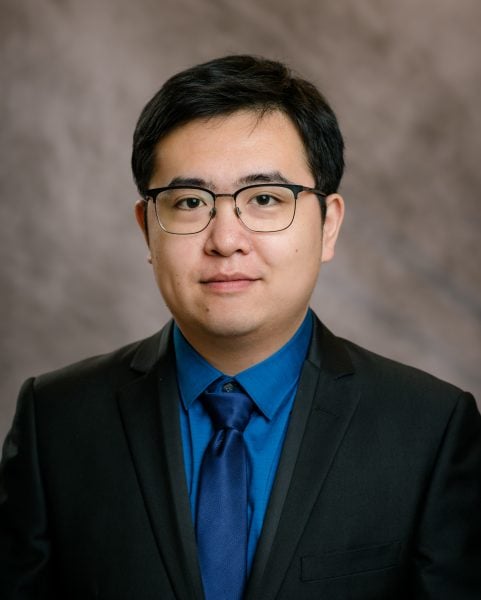I came from central China, where I was born and brought up. I obtained my Bachelor of Engineering degree in civil engineering from Xi’an Jiaotong-Liverpool University, a young collaborated university symbolizing the cooperation and communication between the oriental and western world. Then I went to the United Kingdom and got my master’s degree in structural engineering and mechanics from the University of Glasgow and Edinburgh University. I joined MTU in January 2018 and started my study and research life as a Ph.D. student. The study and journey told me to embrace the difference, learn from the best and do what I can.
Currently, human society is facing some common and severe problems, such as the extreme weather caused by global warming, pollution, and the increasing cost of human resources. As a civil engineer, I would like to help with what I can do. In my vision, the buildings have to be more resilient, ecofriendly, and efficient in cost and human resources in the future. A fundamental improvement to thaw the problems a little would be the improvement of structural systems. I was clueless; then, I met the mass timber structures. Unlike the manufacture of cement, which incinerates stones, or the casting of steel, which melt and treat iron in a furnace, timber structural components manufacture requires much less energy and consolidate the carbon absorbed by the trees. However, despite the outstanding sustainability performance, as a type of natural material, the variation in the mechanical properties and the directional differences limited the utilization. In recent decades, engineered wood products such as CLT broke through the limit and showed great potential as a new and better structural system.
Nevertheless, there are still a lot of technical problems limiting the promotion of mass timber structures. As a civil engineer, I wish to contribute and gain success. I got an opportunity here in MTU to study the manufacture of CLT with low-value timber for first-hand experience. I am studying the CLT wall structures with advanced finite element analysis tools for the structural dynamic response, which could help design and develop mass timber structures. I greatly appreciate MTU and my advisors that provided me the opportunity. And I would like to sincerely thank the Graduate Dean Awards Advisory Panel for approving me for the finishing fellowship award. The award will help me to fully concentrate on finishing my study and dissertation for my Ph.D. degree. It will be a significant step for me to pursue my career and my dream.
